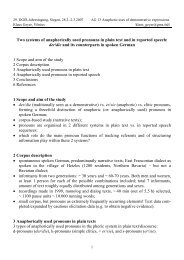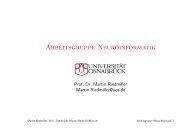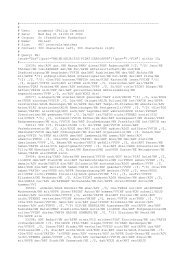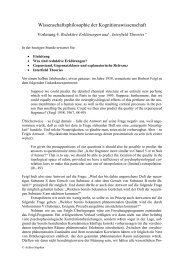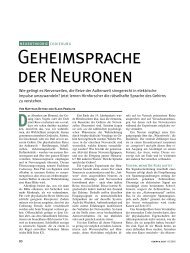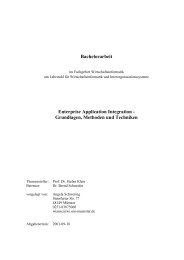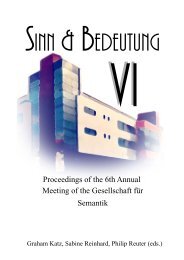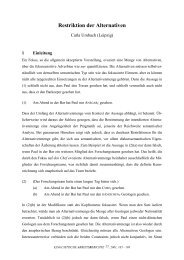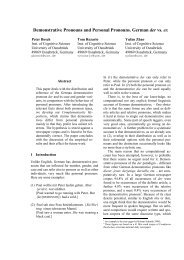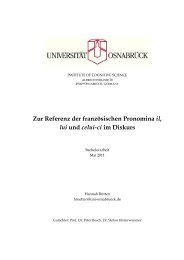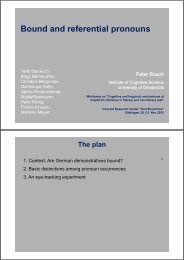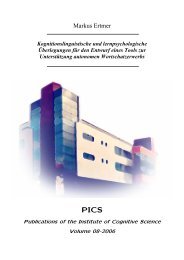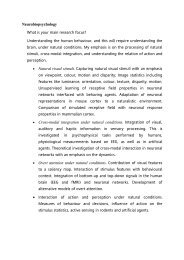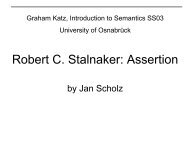Weak definites and German preposition - Cognitive Science
Weak definites and German preposition - Cognitive Science
Weak definites and German preposition - Cognitive Science
You also want an ePaper? Increase the reach of your titles
YUMPU automatically turns print PDFs into web optimized ePapers that Google loves.
A preliminary sketch for the semantics of cPPs<br />
A <strong>preposition</strong>al determiner then governs a bare noun <strong>and</strong> turns it<br />
into a PP, with a denotation like this:<br />
�am Fenster� = �P. (AT �y(WINDOW y) )P<br />
built up from<br />
the <strong>preposition</strong>al determiner: �am� = �Q�P.[AT �y(Qy)] P<br />
<strong>and</strong> the noun: �Fenster� = �x.WINDOW x<br />
One difference between the WD <strong>and</strong> RD readings that our<br />
preliminary sketch does not yet account for is a difference in the<br />
noun denotation; we shall return to this point.<br />
Incorporation permits meaning enrichment <strong>and</strong><br />
explains lexical restrictions<br />
Under an incorporation account the observations regarding<br />
meaning enrichments <strong>and</strong> lexical restrictions could be explained<br />
via “constructions” (if I underst<strong>and</strong> Carlson correctly):<br />
"both the bare singulars <strong>and</strong> the weak <strong>definites</strong> are used in<br />
constructions which designate typical or habitual activities"<br />
(Carlson et al. 2006)<br />
being in prison (unlike being in the garden shed) is not just<br />
being in the location, but being incarcerated.<br />
going to the supermarket (unlike going to the desk) on the<br />
WD reading means not just going there, but going there<br />
with the usual shopping-related intentions.<br />
3<br />
1<br />
3<br />
2<br />
31<br />
32



